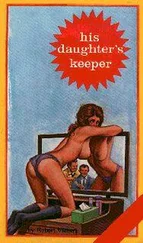“I don’t know,” Blankenship said.
Elliot could not drive the black sky from his inward eye. It was as though Blankenship’s dream had infected his own mind.
“You don’t know? You don’t know what you were scared of?”
Blankenship’s posture was rigid. Elliot, who knew the aspect of true fear, recognized it there in front of him.
“The Nam,” Blankenship said.
“You’re not even old enough,” Elliot told him.
Blankenship sat trembling with joined palms between his thighs. His face was flushed and not in the least ennobled by pain. He had trouble with alcohol and drugs. He had trouble with everything.
“So wherever your black sky is, it isn’t Vietnam.”
Things were so unfair Elliot thought. It was unfair of Blankenship to appropriate the condition of a Vietnam veteran. The trauma inducing his post-traumatic stress had been nothing more serious than his own birth, a routine procedure. Now, in addition to the poverty, anxiety and confusion that would always be his life’s lot, he had been visited with irony. It was all arbitrary and some people simply got elected. Everyone knew that who had been where Blankenship had not.
“Because, I assure you, Mr. Blankenship, you were never there.”
“Whaddaya mean?” Blankenship asked.
When Blankenship was gone, Elliot leafed through his file and saw that the psychiatrists had passed him upstairs without recording a diagnosis. Disproportionately angry, he went out to the secretary’s desk.
“Nobody wrote up that last patient,” he said. “I’m not supposed to see people without a diagnosis. The shrinks are just passing the buck.”
The secretary was a tall, solemn redhead with prominent front teeth and a slight speech disorder. “Dr. Sayyid will have kittens if he hears you call him a shrink, Chas. He’s already complained. He hates being called a shrink.”
“Then he came to the wrong country,” Elliot said. “He can go back to his own.”
The woman giggled. “He is the doctor; Chas.”
“Hates being called a shrink!” He threw the file on the secretary’s table and stormed back toward his office. “That fucking little zip couldn’t give you a decent haircut. He’s a prescription clerk.”
The secretary looked about her guiltily and shook her head. She was used to him.
Elliot succeeded in calming himself down after a while, but the image of black sky remained with him. At first he thought he would be able to shrug the whole thing off. After a few minutes, he picked up his phone and dialed Blankenship’s probation officer.
“The Vietnam thing is all he has,” the probation officer explained. “I guess he picked it up around.”
“His descriptions are vivid,” Elliot said.
“You mean they sound authentic?”
“I mean he had me going today. He was ringing my bells.”
“Good for Blanky. Think he believes it himself?”
“Yes,” Elliot said. “He believes it himself now.”
Elliot told the probation officer about Blankenship’s current arrest, which was for showering illegally at midnight in the Wyndham Regional High School. He asked what Probation knew about Blankenship’s present relationship with his family.
“You kiddin’?” the P.O. asked. “They’re all locked down. The whole family’s inside. The old man’s in Bridgewater. Little Donny’s in San Quentin or somewhere. Their dog’s in the pound.”
Elliot had lunch alone in the hospital staff cafeteria. On the far side of the double-glazed windows, the day was darkening as an expected snowstorm gathered. Along Route 7, ancient elms stood frozen against the gray sky. When he had finished his sandwich and coffee, he sat staring out at the winter afternoon. His anger had given way to an insistent anxiety.
On the way back to his office, he stopped at the hospital gift shop for a copy of Sports Illustrated and a candy bar. When he was inside again, he closed the door and put his feet up. It was Friday and he had no appointments for the remainder of the day, nothing to do but write a few letters and read the office mail.
Elliot’s cubicle in the social services department was windowless and lined with bookshelves. When he found himself unable to concentrate on the magazine and without any heart for his paperwork, he ran his eye over the row of books beside his chair. There were volumes by Heinrich Muller and Carlos Castaneda, Jones’s life of Freud and The Golden Bough. The books aroused a revulsion in Elliot. Their present uselessness repelled him.
Over and over again, detail by detail, he tried to recall his conversation with Blankenship.
“You were never there,” he heard himself explaining. He was trying to get the whole incident straightened out after the fact. Something was wrong. Dread crept over him like a paralysis. He ate his candy bar without tasting it. He knew that the craving for sweets was itself a bad sign.
Blankenship had misappropriated someone else’s dream and made it his own. It made no difference whether you had been there, after all. The dreams had crossed the ocean. They were in the air.
He took his glasses off and put them on his desk and sat with his arms folded, looking into the well of light from his desk lamp. There seemed to be nothing but whirl inside him. Unwelcome things came and went in his mind’s eye. His heart beat faster. He could not control the headlong promiscuity of his thoughts.
It was possible to imagine larval dreams traveling in suspended animation undetectable in a host brain. They could be divided and regenerate like flatworms, hide in seams and bedding, in war stories, laughter snapshots. They could rot your socks and turn your memory into a black and green blister. Green for the hills, black for the sky above. At daybreak they hung themselves up in rows like bats. At dusk they went out to look for dreamers.
Elliot put his jacket on and went into the outer office, where the secretary sat frowning into the measured sound and light of her machine. She must enjoy its sleekness and order he thought. She was divorced. Four red-headed kids between ten and seventeen lived with her in an unpainted house across from Stop & Shop. Elliot liked her and had come to find her attractive. He managed a smile for her.
“Ethel, I think I’m going to pack it in,” he declared. It seemed awkward to be leaving early without a reason.
“Jack wants to talk to you before you go, Chas.”
Elliot looked at her blankly.
Then his colleague, Jack Sprague, having heard his voice, called from the adjoining cubicle. “Chas, what about Sunday’s games? Shall I call you with the spread?”
“I don’t know,” Elliot said. “I’ll phone you tomorrow.”
“This is a big decision for him,” Jack Sprague told the secretary. “He might lose twenty-five bucks.”
At present, Elliot drew a slightly higher salary than Jack Sprague, although Jack had a Ph.D. and Elliot was only an M.S.W. Different branches of the state government employed them.
“Twenty-five bucks,” said the woman. “If you guys have no better use for twenty-five bucks, give it to me.”
“Where are you off to, by the way?” Sprague asked.
Elliot began to answer but for a moment no reply occurred to him. He shrugged. “I have to get back,” he finally stammered. “I promised Grace.”
“Was that Blankenship I saw leaving?”
Elliot nodded.
“It’s February,” Jack said. “How come he’s not in Florida?”
“I don’t know,” Elliot said. He put on his coat and walked to the door. “I’ll see you.”
“Have a nice weekend,” the secretary said. She and Sprague looked after him indulgently as he walked toward the main corridor.
“Are Chas and Grace going out on the town?” she said to Sprague. “What do you think?”
Читать дальше












